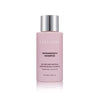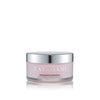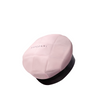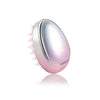
Hair Loss During Pregnancy: Best Expert Advice and Hair Care Treatment!
But the opposite is also possible when there is hormonal imbalance and other additional variables at work that contribute to hair loss.
You need to take a deep breath! Tayloáni has got your back to help you embrace this process. Here we have compiled all the facts, best hair care treatment and advice that you have been missing.
Discover more about hair loss in pregnancy and how to manage and prevent it. Let’s get started!
What Is The Leading Cause Of Hair Loss During Pregnancy?
Significant hair loss is rather common and usually not cause for concern during pregnancy. A woman's body undergoes significant changes while pregnant. The "women's hormone" estrogen, is among the additional hormones released. Excess estrogen typically causes the hair to grow more completely, look more attractive, and feel healthier and stronger.
However, if you face excessive hair loss during pregnancy, it may be due to stress and hormonal changes in the baby's developmental phase. These changes thus act upon fewer hair follicles that reach the telogen phase, also known as the resting phase.
When the baby is born, the body's estrogen levels return to normal, and many additional hairs begin to fall out at the same time. This type of hair loss, often known as postpartum hair loss, affects a lot of women. So, we can say that hormonal change is a condition when an excess of hair follicles rest at once.
Why Is My Hair Receding During Pregnancy?
Pregnancy-related hair loss is unusual. Pregnant women typically notice some good results in their hair growth. Losing hair, often in big amounts, is considerably more typical after giving birth than when you are pregnant. Research about the loss of hair during pregnancy is scarce. One explanation is that the hormone secreted in large amounts during pregnancy may cause hair to become drier.
As a result of this case, your hairline will become more susceptible to breaking and splitting, especially later during pregnancy. It may appear like hair loss because it splits off close to the roots, but it isn't. In either case, this might be very upsetting. Consult your doctor if you have hair loss while pregnant. In this manner, you may be certain that your issue is caused by nothing else. This is particularly crucial if you have a chronic medical problem.
Try these suggestions to limit the harm to your hair in the meantime:
- Aim to avoid overbrushing your hair. This may aid in averting future harm.
- Use our Infinigrowth Shampoo and Detangler Brush to comb your wet hair.
- Only sometimes wear your hair in a ponytail or bun because doing so may cause it to strain and become more prone to breaking.
- Try to avoid using chemical straightening agents or dyes. They may have an impact on your hair's health and cause it to get drier and more fragile.
According to some experts, consuming a lot of fruits and vegetables that are high in polyphenols and antioxidants may preserve hair follicles and promote development. Even if consuming fruit and vegetables doesn't improve your hair, it will still be healthy for your well-being and your unborn child.
Your hair may require some time to regrow just after the delivery of your child. As your entire body, especially your hair, heals from pregnancy. Be patient with yourself!

What Changes Occur in Your Hair During Pregnancy?
Due to the extreme hormonal changes brought on by pregnancy, your hair may experience a range of changes, including becoming fuller and longer or more fragile and drier. Rising estrogen levels typically slow the growth cycle during pregnancy. This indicates that hair follicles lose hair more gradually during pregnancy, giving the illusion of thicker, richer hair. Additionally, less oil (sebum) is produced by the hair follicles, giving the hair a fuller, brighter appearance. But this is rarely the situation.
The increasing levels of progesterone are one of the causes of fragile hair. High levels of progesterone are produced during pregnancy, but they can also make the hair brittle. The hair seems to be more susceptible to breaking at the root because of its increased brittleness, which can give the impression of hair loss. However, this isn't something we would categorize as regular hair loss. Remember that every pregnancy is unique. Your hair's condition throughout your first pregnancy may differ greatly from that during your second.
When Will My Hair Grow Back?
Note that this is merely a temporary phase. Most mothers who shed hair after giving birth will discover that it has returned to its typical fullness.
Some women's hair rediscovers its thickness even before the year mark following delivery. Schedule a visit with your dermatologist if it's been over a year since your child's birth and your hair hasn't returned to its usual thickness.
So, you can find the real cause of hair loss and a precise diagnosis.

Best Expert Advice And Hair Care Treatment
Pregnancy-related hair loss is transient and does not require medical attention. However, Tayloáni recommends the following hair care advice:
- Changing to a shampoo that contains volumizing agents.
- Steer clear of products with the labels "conditioning shampoo" and "intense conditioners."
- Instead of conditioning the scalp, focus on the ends of the hair.
- Use Infinigrowth Hair Masque for fine or thinning hair. It has the tendency to enhance follicle growth through its effective organic key ingredients.
-
Attempting a new hairstyle that makes you appear fuller.
Keeping a Balanced Diet:
An essential component of postpartum healing is nutrition. It's easier to make sure the body receives the nutrients it requires to function and encourage healing by eating a mix of fruits, vegetables, and lean meats.
The Tayloáni suggests the following foods for hair growth:
- Fish, such as mackerel and salmon.
- Leafy greens with a deep color, such as broccoli, Swiss chard, and kale.
- Legumes, including chickpeas and red lentils.
- Nuts, including cashews, hazelnuts, walnuts, almonds, and macadamia nuts.
Using Dietary Supplements:
Although no specific vitamins have been shown to reduce or prevent pregnancy hair loss, Tayloáni advises that everyone, even those who are pregnant and breastfeeding, think about taking a daily vitamin D supplement.
Using Stress Management Techniques:
A person's health can suffer from stress. Severe hair loss might be a result of ongoing stress. A woman who is expecting can lessen their level of stress by:
- Consistent exercise.
- Engaging in relaxation exercises like yoga and meditation.
- Consider therapy.
- Using deep breathing techniques.
Get Some Iron:
Iron deficiency is more likely to occur during pregnancy. Your risk is even higher if you are carrying multiples, suffer from severe morning sickness, or become pregnant quickly after giving birth. The inability to create sufficient red blood cells to effectively deliver oxygen and nutrients throughout your body is caused by low iron levels.
This also results in various other symptoms, including thinning hair:
- Uneven heartbeat.
- Recurrent headaches.
Your hair generally won't regain its thickness and luster until you treat your iron levels. Consult your doctor if you witness you may develop anemia while pregnant. You can find out whether you should take iron pills with a quick blood sample.
Additional Guidelines During Pregnancy and After Delivery
Follow these few essential steps to improve the health of your hair and/or stop hair loss during pregnancy and after giving birth:
- Speak with your doctor to make sure your hormones are balanced properly.
- Stay away from tight hair rollers, braids, weaves, braids, and pigtails since they can strain and damage your hair.
- Use vitamin and biotin-containing Shampoo and Hair Masque.
- Be cautious while handling damp hair and stay away from fine teeth combs.
- Use the cool setting on blow dryers as well as other heated hair tools if you must.
- Add these essential vitamins and minerals to your diet as a supplement: vitamin B complex, biotin (potentially safe when taken orally and in the recommended amounts), vitamin C, vitamin e (probably safe if the dosage does not surpass the RDA; probably safe if it does), zinc, or vitamin c.
How About Postpartum Loss of Hair?
After birth, the hormone levels are restored to normal, allowing the hair to shed out and the cycle to resume as usual. The typical hair loss that was postponed during pregnancy can suddenly stop. Your hair that is currently growing may go into the hormonal changes resting stage up to 60% of the time. Hair loss typically peaks 3–4 months after delivery as your hair follicles renew themselves. As previously said, this hair loss is only transitory, and within six to twelve months, hair loss is back to normal.
Can Hair Loss After Giving Birth be Stopped?
You can perform many actions to help combat hair shedding, even if nothing can completely halt it. You can add some practices to your everyday routine and undergo certain procedures with the assistance of your dermatologist to make your hair appear and feel healthier.
- Your dermatologist can administer several medical techniques to help verify the diagnosis and determine the best course of treatment to stop hair loss. One of the therapies entails restoring your body's iron stores or taking vitamins for your hair to treat Hair loss.
- Lead an active and healthy lifestyle; eating right, exercising, and caring for your body are all important for healthy hair.
- Though it is simpler said than done, strive to maintain a low level of stress. Stress may be a factor in hair loss and thinning.
- Keep your scalp healthy and clean by utilizing Infinigrowth Hair Growth Bundle. It will help you get rid of scalp flakes and promote hair growth.
Keep in mind that pregnancy hair loss is only momentary and often seems to last just several months.
What Amount of Hair Loss While Pregnant is Regarded as Typical?
The months immediately following childbirth are when women most frequently experience hair loss. Unlike other types of hair loss, this postpartum hair loss is unique. It results from the abrupt decline in estrogen after delivery. Even while it could be upsetting to see dozens of hair come out each moment you shampoo your hair, this is a common occurrence that normally goes away in about six months.
Also, it is possible to experience hair loss due to damage to the follicles themselves at any time, including during pregnancy. When hair is handled roughly, it can result in traction alopecia, a condition where hair loss is brought on by tugging on your hair too much. If this is the situation, try to make a loose hairstyle and prevent continuously styling it tightly. It's crucial to recognize the symptoms of traction alopecia and cease the practice before any long-term harm is done since it can result in permanent hair loss.
Summary
Many women experience natural hair loss during pregnancy, especially in the postpartum period. It typically takes around six months and a year to disappear. Even if an underlying issue exists, a doctor can assist you in identifying and treating it, and hair loss is probably not permanent. Also, you can get your lustrous hair back with the right hair care treatment and proper diet.
So it's your turn to pick the safest hair care products and give yourself the right therapy.







